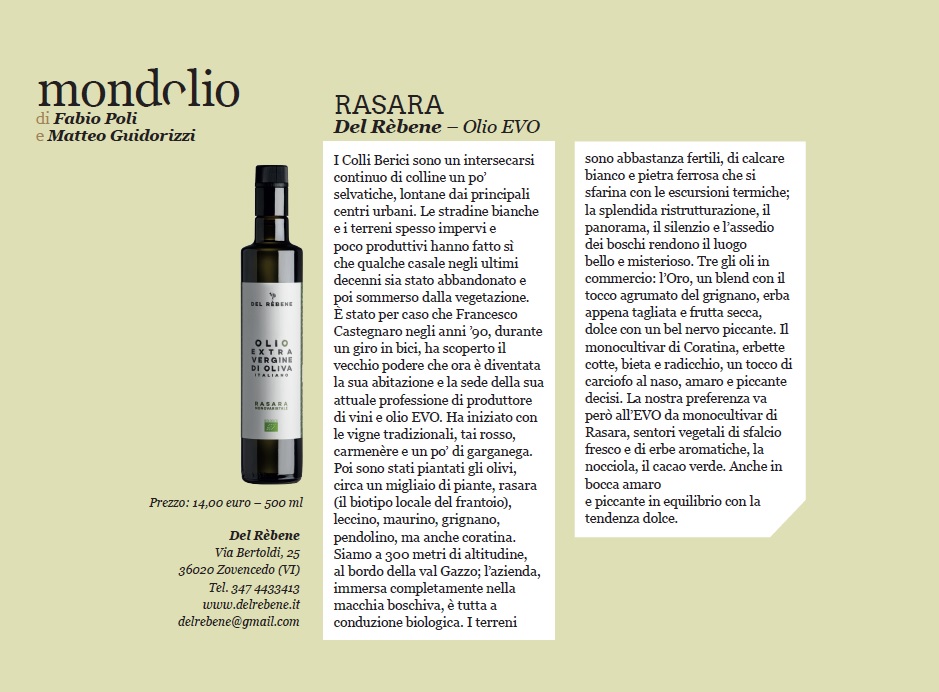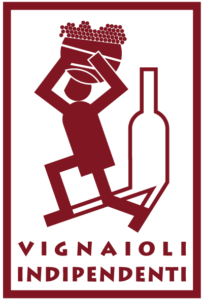Mondolio
We are very pleased to bring you the review of Mondolio, the Venetiamagazine column, edited by Fabio Poli and Matteo Guidorizzi.
The Berici Hills are a continuous intersection of somewhat wild hills, far from the main urban centers.
The dirt roads and often inaccessible and unproductive terrain have meant that some farmhouses have been abandoned in recent decades
then submerged by vegetation.
It was by chance that Francesco Castegnaro in the 1990s, during a bike ride, discovered the old farm which has now become his home and the headquarters of his current profession as a producer of wines and EVO oil. He started with traditional vines, red tai, carmenère and a little garganega.
Then the olive trees were planted, about a thousand plants, rasara (the local biotype of the oil mill), leccino, maurino, grignano, pendolino, but also coratina.
We are at 300 meters above sea level, on the edge of the Gazzo valley; the company, completely immersed in the woodland, is entirely organically run.
The soils are quite fertile, of white limestone and ferrous stone that crumbles with temperature variations; the splendid renovation, the
panorama, silence and the siege of the woods make the place beautiful and mysterious.
There are three oils on the market: Oro, a blend with the citrus touch of Grignano, freshly cut grass and dried fruit, sweet with a nice spicy edge.
The Coratina monocultivar, cooked herbs, chard and radicchio, a touch of artichoke on the nose, strong bitterness and spiciness. Our preference, however, goes to EVO from Rasara monocultivar, vegetal hints of fresh mowing and aromatic herbs, hazelnut, green cocoa.
Also bitter and spicy in the mouth in balance with the sweet tendency.





